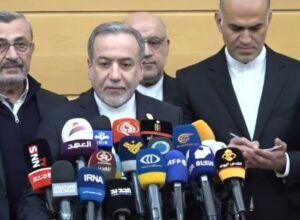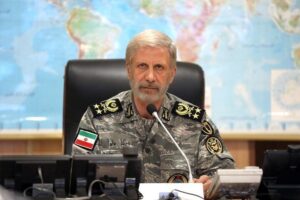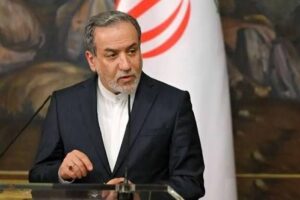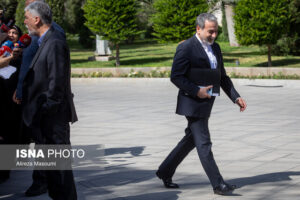Avash News: Davenport analyzed the current state of negotiations between the United States and Iran in her latest article, writing:
“After the UN Security Council reinstated sanctions and nuclear restrictions against Iran, both Tehran and Washington expressed willingness to resume talks on a new nuclear deal. However, it appears that neither side is ready to take the first step toward dialogue.”
U.S. President Donald Trump said in a speech on October 13, delivered at a synagogue in Israel, that “it would be excellent if we could reach a peace agreement with Iran.” However, there are still no signs of imminent negotiations.
Following the reinstatement of the Security Council resolutions on September 28—which had been suspended under the Joint Comprehensive Plan of Action (JCPOA) in 2015—Trump declared that the U.S. “is ready for an agreement whenever Iran is ready.” In the same speech, he added, “We have extended a friendly hand to Iran, and it would be very good if we could achieve a peace deal.”
Two days earlier, Iranian Foreign Minister Abbas Araghchi stated in a televised interview that Iran “will consider a good and balanced proposal.” However, according to him, Tehran has not yet received any message from the U.S. regarding the resumption of nuclear negotiations.
The United States has revealed little about its negotiation stance, except for repeatedly insisting that Iran must halt uranium enrichment. The reinstatement of UN sanctions in September, combined with military attacks by Israel and the U.S. against Iran in June, has further complicated the prospects for renewed nuclear talks.
The article also highlights the illegal attacks carried out by the U.S. and Israel on Iran’s nuclear facilities in June, noting that Iran is not currently enriching uranium. However, following those attacks, Tehran insists that any future nuclear deal must include its right to enrichment.
Ayatollah Ali Khamenei, the Leader of the Islamic Republic, stressed that Trump’s administration must not expect Iran to surrender to U.S. demands. “If an agreement is imposed by force and its result is predetermined, it is no longer a deal—it is coercion and bullying,” Iran’s Leader said on October 18.
Iran has also refused to engage in further talks with France, Germany, and the United Kingdom, accusing the three European countries of triggering the reinstatement of UN sanctions through the snapback mechanism on September 28.
Davenport emphasized that the lack of active diplomacy has heightened the risk of conflict among Iran, Israel, and the United States. She noted that Iran has suspended normal cooperation with the International Atomic Energy Agency (IAEA), writing: “Iran has not allowed IAEA inspectors to visit the sites bombarded during the June attacks. Without access to these sites and accurate information on Iran’s nuclear stockpile, it remains unclear which parts of Iran’s nuclear program are still intact and how quickly they could be restored.”
However, Iran has not completely cut ties with the IAEA. Rafael Grossi, the Agency’s Director General, said in an interview on October 22 that “Iran still allows inspections, but only sporadically.”
The author also warned that Iran’s failure to fully comply with its monitoring obligations could complicate any future negotiations: “The negotiating parties will not have a clear picture of the scope of Iran’s remaining nuclear program.”
In a joint statement on October 18, China, Russia, and Iran declared that the European troika’s action to reinstate sanctions was legally and procedurally flawed, emphasizing that October 18 marks “the end of the UN Security Council’s consideration of Iran’s nuclear issue. Therefore, all provisions of Resolution 2231 have expired.”
As Davenport concluded, “If countries like China and Russia fail to uphold their obligations as UN members in implementing sanctions and restrictions, the U.S. will find it increasingly difficult to apply maximum pressure on Iran. Washington will have limited leverage to push Tehran toward accepting ‘zero enrichment’ in any future deal.”







